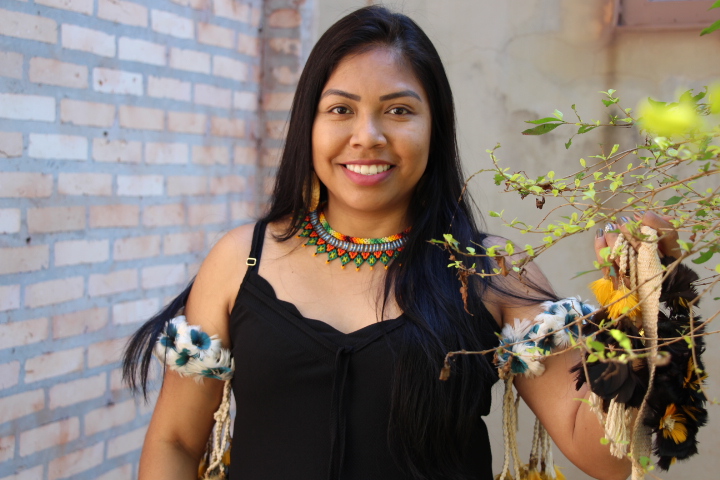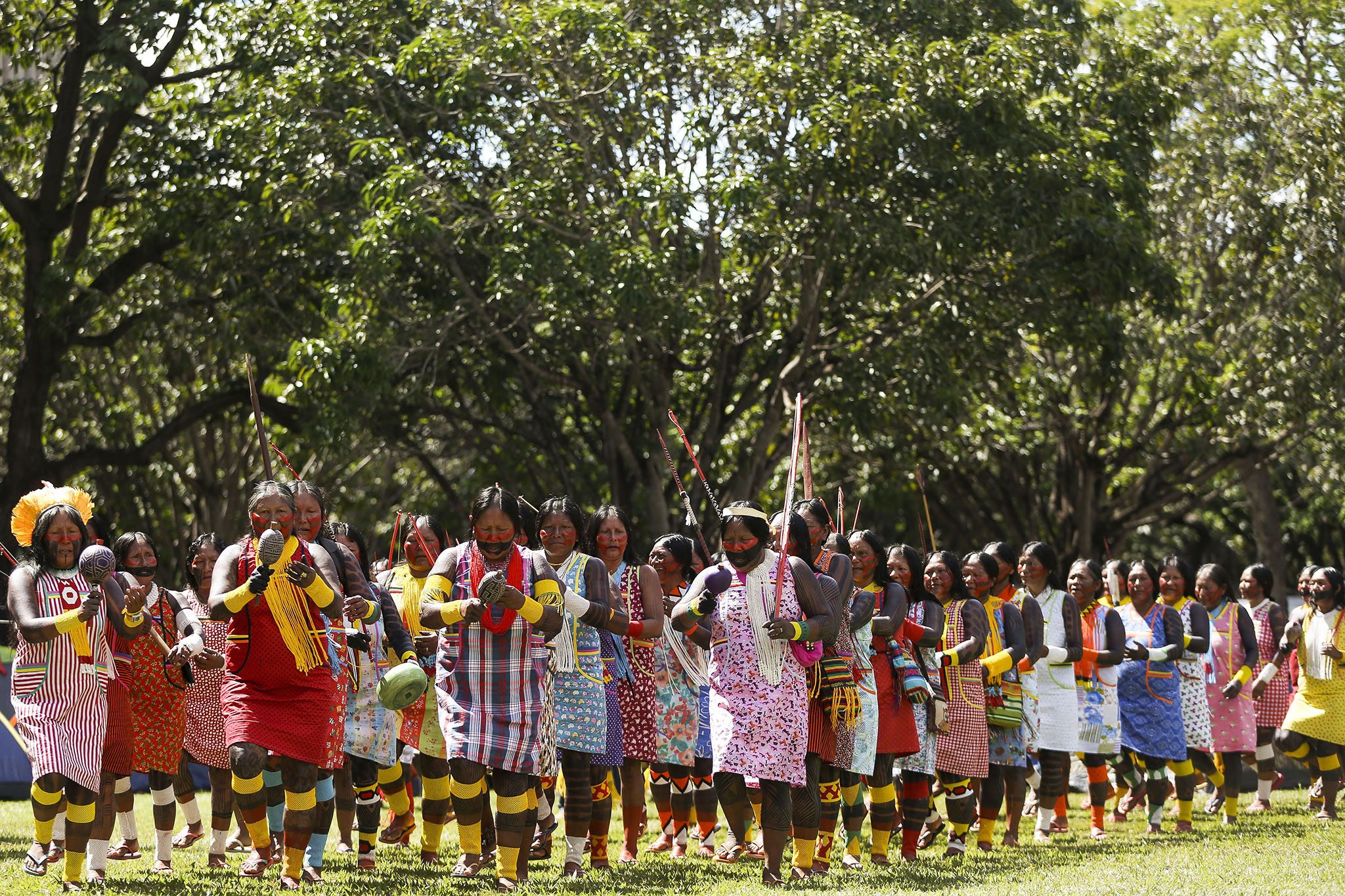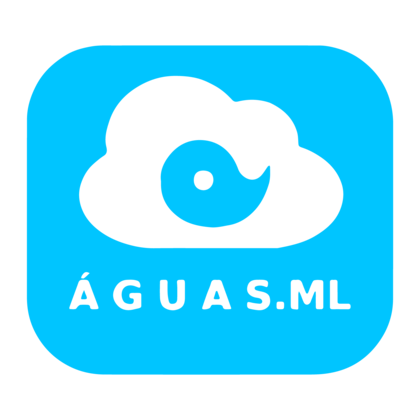
Indianara Machado Ramires Guarani Kaiowá is a nurse in Dourados (MS)- Photo: Indianara Machado Ramires Guarani Kaiowá
Chronic vulnerabilities, intermittent water supply and food scarcity: these are some of the challenges to preventing the spread of coronavirus according to nurse Indianara Machado Indianara Ramires Guarani Kaiowá, who works with the Technical Coordination Centre for Dourados. The Centre manages the healthcare of more than 18,000 indigenous people living in Dourados, an area that encompasses the largest indigenous reserve in Brazil.
In an interview with UN Women Brazil in early April, the nurse explained why indigenous women, men and children were more vulnerable and pointed out how historical issues increased the risks posed to them by the new coronavirus pandemic.
The state of Mato Grosso do Sul, where Dourados is situated, has approximately 520 hospital beds in its Intensive Care Units (ICUs), 380 of them provided by Brazil’s Sistema Único de Saúde (SUS), the country’s publicly funded healthcare system. Yet in the city of Dourados, only 35 hospital beds are available for a total population of 210,000 people.
“We are already suffering from public policy failures that have resulted in a shortage of healthcare and quality education, sanitation and waste collection”, Indianara said. She also suggested that the reason for this could be attributed to “the very lack of demarcation of indigenous territories, in addition to the absence of policies for job generation and income”. The nurse also explained that the indigenous communities were very close to Dourados’ urban centre, generating a constant traffic of people between the villages and the city. She said that usually the village women travelled to the city to exchange cassava for rice, among other things, which raised concerns regarding their ability to respect social distancing recommendations.
Indianara has been disseminating information on COVID-19 to indigenous homes and communities and said that she has been trying to find solutions together with local authorities regarding the lack of supplies for the indigenous population. “Sometimes the water comes once a week, three or four times a week. It has generated a lot of concern and we have been working with managers to overcome this problem. “We need to work together to ensure that indigenous communities do not suffer during the pandemic” she explained.

Indigenous people from all over Brazil go to Brasília to participate in the Acampamento Terra Livre (Camp Free Land). (2018) – Photo: Marcelo Camargo/ Agência Brasil.
Traditional knowledge – A focus on traditional care and spiritual knowledge has been an effective strategy to build solidarity within indigenous communities, in light of the fear caused by the new coronavirus. “Our elders have been helping to strengthen our youths spiritually. They have been praying and singing so that the indigenous youth and the community will remain strong throughout the pandemic, which is worrisome to families”, explained the healthcare professional.
Fonte
O post “Water and food shortages challenge the prevention of coronavirus on the largest indigenous reserve in Brazil” foi publicado em 21st abril 2020 e pode ser visto originalmente diretamente na fonte ONU Brasil

